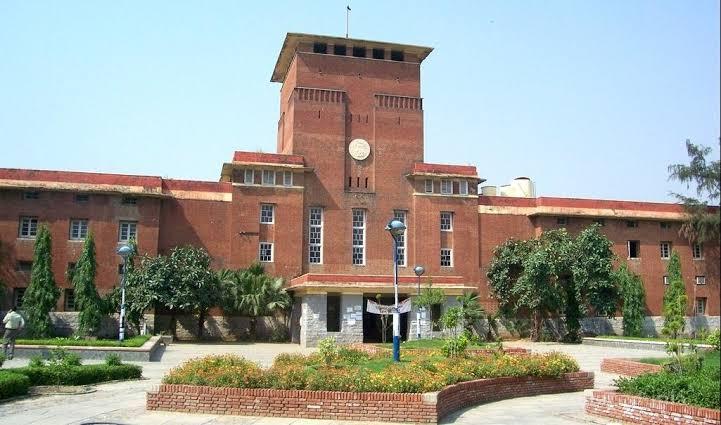HECI Bill to Allow Foreign Universities, More Autonomy: What It Means for Higher Education

Higher Education Commission of India Bill, 2018, a contentious bill, which seeks to replace University Grants Commission and All India Council of Technical Education with a single regulator may be tabled in the winter session, reports suggest. The draft of the bill, reports claim, has departed significantly on two crucial issues of allowing foreign universities and autonomy to educational institutions across the country. Both provisions have been earlier confronted by the educationists, teachers and activists alike. What does it mean for higher education in India? NewsClick spoke to educationists and teachers to know about their opinion about the provisions of the proposed bill.
Anil Sadgopal, an eminent educationist, said that the major departure from the previous draft in form of allowing foreign universities in the country is a reflection of crisis in the universities of United States of America and the European Union where they have been subjected to huge fund cuts. Sadgopal's statement is rooted in the fact that a recent report popularly known as ‘Augar Report’ in the Britain recommended significant cuts in students financing. The report maintained that loan repayments should start at a lower salary level and their timeframe extended from 30 years to 40 years.
He said, “Inviting foreign universities to open campuses in India can be seen from two angles. First, as part of the colonial legacy, every foreign thing is considered superior in comparison with the indigenous. Secondly, the fund cuts have pushed many third grade private universities to explore their options in developing countries and India is a major market for them. But what is more concerning is the consistent withdrawal of government’s responsibilities enshrined in Article 41 of the Constitution. The article mandates that the state shall, within the limits of its economic capacity and development, make effective provision for securing the right to work, to education and to public assistance in cases of unemployment, old age, sickness and disablement. On the one hand, the government is citing lack of funds, but it has enough money to extend loans to other countries.”
To the question of any history of established reputed universities opening their campuses in other parts of the world, he said, “The whole discussion about inviting foreign universities began in UPA-II government. Then HRD Minister Kapil Sibal went to Yale University to invite its vice chancellor to open its campus in India. The vice chancellor reportedly declined his request outrightly. We must understand universities grow as per the economic and cultural needs of any country. They cannot be imported. Harvard University is considered one of the best universities in the world and has a history of more than 200 years. Now, America was the colony of Britain. Did it ever invite British Universities to open their campuses? Certainly Not. They invested in their education and made their universities. Our universities like Delhi University produced Amartya Sen. He spent a significant time of his life in Delhi University. So, the problem is not with the universities, it is with the government’s intentions.”
Abha Dev Habib, who teaches physics at Miranda House, Delhi University is concerned about the nature of permissions extended to the foreign universities. Habib, also former Executive Council Member, told NewsClick, “We need to see if they are allowed for profit or non-profit operations. Another concern is regarding the shifting of the best teachers to these universities. Once they are allowed, they will be attracting our best teachers. So, Delhi University may be deprived of its best talent.”
Commenting on the provisions on the autonomy in terms of awarding of degrees and administration, she said, “The experience tells us it is other way around. The programmes and seminars organised by departments are consistently scrutinised. UGC has already dictated that 70% of the syllabus of all the universities will be same. A March 3 circular suggested that the deans and registrars will responsible for financial decisions, which means they are under pressure to increase the fees. So, what autonomy are they talking about?”
Also read: JNU EC Unaware of 'Emeritus Professor' Term?
Get the latest reports & analysis with people's perspective on Protests, movements & deep analytical videos, discussions of the current affairs in your Telegram app. Subscribe to NewsClick's Telegram channel & get Real-Time updates on stories, as they get published on our website.
























